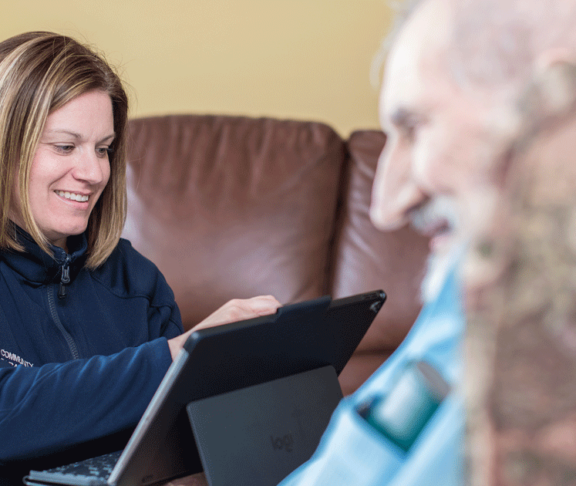
Erik Sande
President, Medavie Health Services
Health care in Canada has evolved significantly over the years, with an increased focus on delivering personalized and accessible services.
One approach gaining momentum, alongside practices like virtual care, is Mobile Integrated Health (MIH). It’s a holistic, team-based approach that brings health care services directly to individuals within their homes and communities.
Supporting people and communities
MIH emphasizes proactive, community-centered, culturally relevant care that addresses both immediate and long-term health needs. Programs are often publicly funded yet privately delivered and can take many forms: public health assistance, primary and preventative health care, remote patient monitoring, after-hours support, palliative care at-home, mobile clinics, and targeted support for socially vulnerable populations such as seniors, those with complex medical needs, and those in remote, rural, and Indigenous communities.
Making an impact
Results from various privately delivered, publicly funded MIH programs are making an impact on the people and communities being served. In Chatham-Kent, Ont., the local community paramedicine program has resulted in an 84 per cent reduction in 911 calls and a 51 per cent reduction in emergency department visits for targeted populations. Meanwhile, in Saskatoon, Sask., a mobile health bus is a collaboration between the Saskatoon Tribal Council and the provincial and federal governments that provides dental services and community paramedicine support to seven First Nations communities. The bus operates four days a week, 10 months a year, providing direct access to care to over 15,000 people annually.
In Chatham-Kent, Ont., the local community paramedicine program has resulted in an 84 per cent reduction in 911 calls and a 51 per cent reduction in emergency department visits for targeted populations.
Across Prince Edward Island, a mobile mental health service provides a community-focused response from a specialized health care team to Islanders experiencing a mental health crisis. Since 2021, the team has responded to ~7,000 calls supporting over 4,500 Islanders (and counting). Over 96 per cent of patients are treated in their communities, rather than being transferred to the emergency department.
And one of the best examples of how MIH can quickly address urgent public health issues was seen during the height of the COVID-19 pandemic. Teams across the country were engaged to facilitate provincial border screenings and mobile testing clinics. They also mobilized to deliver regional mobile and workplace vaccine clinics across various geographies.
Final thoughts
In the face of today’s complex health care challenges, it’s important to bring together a mix of knowledge, expertise, and talent to develop, test, and scale alternative models of care. Other publicly funded primary care services are making strides by bringing care to individuals who don’t have a family doctor or nurse practitioner. The focus is connecting people to the health care they need with in-person, telephone, or online appointments while they wait for a longer-term placement with a permanent provider. A centralized health record is maintained that follows patients with each of their appointments, allowing for any needed follow-up.
By maintaining momentum and continually evolving community-centered care to meet the diverse needs of Canada’s regions and populations, we can put health care back into the heart of our communities. Ultimately, we can help to ensure people receive the care they need, when and where they need it.
Learn more at medavie.ca/en/stories.




